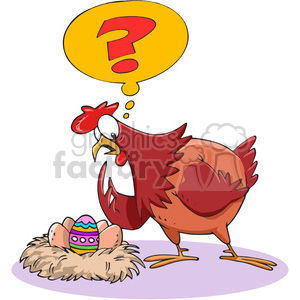Beitzah 3b-4a.
1- We discussed the following concept: An item that we can eat because of bitul vs an item that we can eat because of ‘safek mi’deRabanan‘.
A- An egg which was born on Shabbos and Yom Tov cannot be eaten today.
Now this egg got mixed up with other permissible eggs. In theory it is batul and can be eaten today.
‘Davar Sheyesh Lo Matirin’ kicks in and we are told to wait until tomorrow, – for tomorrow it can be eaten without having to resort to bitul.
As Moshe pointed out – bitul is 99.99% but not 100%

Can we use the same logic – [why eat it today utilizing bitul when tomorrow it can be eaten without the need for bitul] – when the issue is not bitul but ‘safek?
Why eat it today utilizing the leniency of ‘safek mi’deRabanan‘ when tomorrow there is no need for such leniency? For example:

B -An egg which is in doubt whether it was born on Shabbos or Yom Tov.
In theory it can be eaten today. (Assuming the reason for the prohibition of eating such eggs is only mi’deRabanan)
True – today it is a ‘safek‘ and not a problem [again- 99.99% or 100%]
But tomorrow it may be eaten without any issue.
It seems that the Gemara has two opinions on this query.
2- We spoke about the prohibition of ‘ein mevatlin issur lechatchila’. One is not allowed to add a large quantity of kosher food into treife food in order to be mevatel the treifa food.

This is an issue in Starbucks flavor pumps that are connected to various large bottles containing flavors. Some flavors are not Kosher. The Kosher flavors end up occasionally in the bottles that previously contained non-Kosher flavors. But the residue of the non-Kosher flavor are batel to the large amount of Kosher syrup.

On the other hand it is performed unintentionally – and many times – by a goy.

3- Also discussed the common practice of food manufacturing companies which use actual food to kasher their production lines. After a run of non-Kosher food, a batch of Kosher food is run through the machines. This particular batch does not receive a Kosher stamp but the process itself Kashers the treif machinery! Subsequent product is certified “kosher”


4- We concluded with the piece of the Gemara that discusses the case of a chicken that is purchased ‘stam‘ – not particularly for the purpose of eating it (not muktzeh on Yom Tov) and also not for the purpose of using it for laying eggs (rendering it muktzeh on Yom Tov.)

Stam a chicken.
Now it lays an egg on Yom Tov. The Gemara suggests that the action of the the owner with the chicken will decide the fate of the egg, utilizing the unique principal of breirah: If he decides to eat the chicken then the egg will be permitted as well. If he decides to have the chicken lay eggs then she is muktzeh and so is the egg.
FROM David Olidort:
is the translation of “nolad” “born” when it applies to an egg?